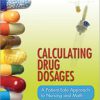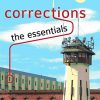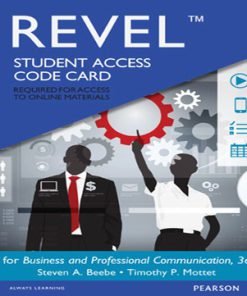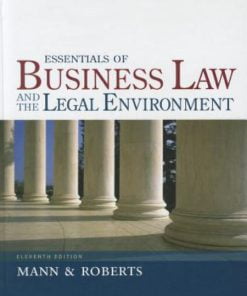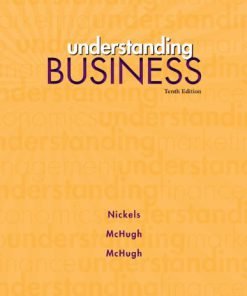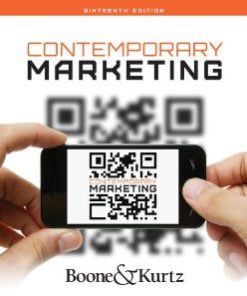Test Bank For Cognitive Psychology: Connecting Mind, Research and Everyday Experience 3rd Edition by E. Bruce Goldstein
$35.00 Original price was: $35.00.$26.50Current price is: $26.50.
Test Bank For Cognitive Psychology: Connecting Mind, Research and Everyday Experience 3rd Edition by E. Bruce Goldstein
Instant download Test Bank For Cognitive Psychology: Connecting Mind, Research and Everyday Experience 3rd Edition by E. Bruce Goldstein pdf docx epub after payment.
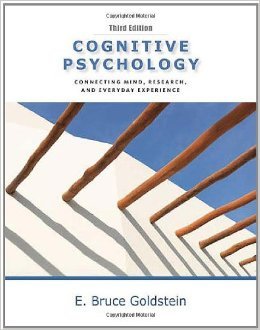
Product details:
- ISBN-10 : 0840033559
- ISBN-13 : 978-0840033550
- Author: E. BRUCE GOLDSTEIN
A lot goes on in your head when you’re doing something simple like remembering (or forgetting!) to do your next assignment. Bruce Goldstein explains all this activity going on in your mind in COGNITIVE PSYCHOLOGY: CONNECTING MIND, RESEARCH, AND EVERYDAY EXPERIENCE. Concrete examples and illustrations help you understand both the scientific importance of theories and their relevance to you, including research-based suggestions for better ways to study.
Table of contents:
- Chapter 1: Introduction to Cognitive Psychology
- Cognitive Psychology: Studying the Mind
- Abandoning the Study of the Mind
- The Rebirth of the Study of the Mind
- The Evolution of Cognitive Psychology
- Something to Consider
- Chapter Summary
- Think about It
- Key Terms
- CogLab Experiments
- Chapter 2: Cognitive Neuroscience
- Levels of Analysis
- Neurons: Basic Principles
- Representation by Neural Firing
- Localized Representation
- Distributed Representation
- Neural Networks
- Something to Consider
- Chapter Summary
- Think about It
- Key Terms
- CogLab Experiments
- Chapter 3: Perception
- The Nature of Perception
- Why Is It So Difficult to Design a Perceiving Machine?
- Information for Human Perception
- Conceptions of Object Perception
- Neurons and Knowledge about the Environment
- Perception and Action: Behavior
- Perception and Action: Physiology
- Something to Consider: Knowledge, Inference, and Prediction
- Chapter Summary
- Think about It
- Key Terms
- CogLab Experiments
- Chapter 4: Attention
- Attention as Information Processing
- Processing Capacity and Perceptual Load
- Directing Attention by Scanning a Scene
- Outcomes of Attention
- Divided Attention: Can We Attend to More Than One Thing at a Time?
- Distractions
- What Happens When We Don’t Attend?
- Attention and Experiencing a Coherent World
- Something to Consider
- Chapter Summary
- Think about It
- Key Terms
- CogLab Experiments
- Chapter 5: Short-Term and Working Memory
- The Modal Model of Memory
- Sensory Memory
- Short-Term Memory: Storage
- Working Memory: Manipulating Information
- Working Memory and the Brain
- Something to Consider: Why Is More Working Memory Better?
- Chapter Summary
- Think about It
- Key Terms
- CogLab Experiments
- Chapter 6: Long-Term Memory: Structure
- Comparing Short-Term and Long-Term Memory Processes
- Episodic and Semantic Memory
- Back to the Future
- Procedural Memory, Priming, and Conditioning
- Something to Consider
- Chapter Summary
- Think about It
- Key Terms
- CogLab Experiments
- Chapter 7: LTM: Encoding, Retrieval, and Consolidation
- Encoding: Getting Information into Long-Term Memory
- Effective Studying
- Retrieval: Getting Information Out of Memory
- Consolidation: Establishing Memories
- Reconsolidation: The Dynamics of Memory
- Something to Consider: Alternative Explanations in Cognitive Psychology
- Chapter Summary
- Think about It
- Key Terms
- CogLab Experiments
- Chapter 8: Everyday Memory and Memory Errors
- The Journey So Far
- Autobiographical Memory: What Has Happened in My Life
- Memory for “Exceptional” Events
- The Constructive Nature of Memory
- The Misinformation Effect
- Creating Memories for Events in People’s Lives
- Why Do People Make Errors in Eyewitness Testimony?
- Something to Consider
- Chapter Summary
- Think about It
- Key Terms
- CogLab Experiments
- Chapter 9: Conceptual Knowledge
- How Are Objects Placed into Categories?
- Is There a Psychologically “Basic” Level of Categories?
- Representing Relationships Among Categories: Semantic Networks
- The Connectionist Approach
- Four Proposals about How Concepts Are Represented in the Brain
- Something to Consider: The Hub and Spoke Model
- Chapter Summary
- Think about It
- Key Terms
- CogLab Experiments
- Chapter 10: Visual Imagery
- Imagery in the History of Psychology
- Imagery and Perception: Do They Share the Same Mechanisms?
- Imagery and the Brain
- Using Imagery to Improve Memory
- Something to Consider
- Chapter Summary
- Think about It
- Key Terms
- CogLab Experiments
- Chapter 11: Language
- What Is Language?
- Understanding Words: A Few Complications
- Understanding Ambiguous Words
- Understanding Sentences
- Understanding Text and Stories
- Having Conversations
- Something to Consider
- Chapter Summary
- Think about It
- Key Terms
- CogLab Experiments
- Chapter 12: Problem Solving & Creativity
- What Is a Problem?
- The Gestalt Approach
- The Information-Processing Approach
- Using Analogies to Solve Problems
- How Experts Solve Problems
- Creative Problem Solving
- Creativity and the Brain
- Something to Consider
- Chapter Summary
- Think about It
- Key Terms
- Chapter 13: Judgment, Decisions, and Reasoning
- Inductive Reasoning: Making Judgments from Observations
- Deductive Reasoning: Syllogisms and Logic
- Decision Making: Choosing Among Alternatives
- Something to Consider
- Postscript: Donders Returns
- Chapter Summary
- Think about It
- Key Terms
- CogLab Experiments
- Glossary
- References
- Name Index
- Subject Index
People also search:
Cognitive Psychology: Connecting Mind, Research and Everyday Experience 3rd Edition
Cognitive Psychology: Connecting Mind, Research and Everyday Experience 3rd Edition pdf
Cognitive Psychology: Connecting Mind, Research and Everyday Experience
cognitive psychology of decision making
cognitive psychology on artificial intelligence
cognitive psychology of consciousness
Related products
Test Bank
Test Bank for Decision Support and Business Intelligence Systems, 9th Edition: Efraim Turban
Test Bank
Test Bank for Essentials of Business Law and the Legal Environment, 11th Edition: Richard A. Mann


